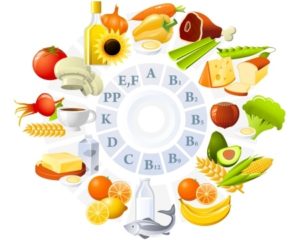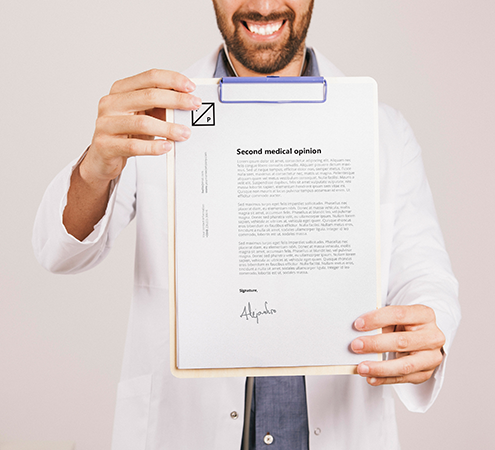The key to a healthy body is a strong immune system, ready to face the viruses and bacteria that surround us every day, regardless of the season. It is important to make sure that we provide our body with all the vitamins and minerals it needs to function in optimal parameters.

Even if, normally, the body takes the necessary intake of vitamins and minerals from various foods, there are situations in which it cannot properly assimilate all the nutrients, and this usually happens due to a deficiency of vitamins.
Calcium, for example, an essential mineral that contributes to bone formation and strength, cannot be sufficiently absorbed by the body without vitamin D.
For the most part, vitamins can be assimilated from the diet, but there are exceptions, such as vitamins D and K. Vitamin K, for example, is produced in the body only under special conditions by certain bacteria produced in the intestine. Vitamin D, as you well know, is synthesized after sun exposure.
Vitamins essential for health
Vitamin A
Vitamin A plays an important role in maintaining the health of the skin and mucous membranes, while ensuring the proper functioning of the skeletal and nervous systems.
Vitamin A is found in nature in the form of retinol (present in foods of animal origin) and beta-carotene, mostly contained in vegetable products (carrots, apricots, sweet potatoes, green leafy vegetables).
Retinol helps maintain healthy skin by accelerating the process of cell regeneration and stimulating collagen production. Beta-carotene is very important for maintaining visual acuity, prevents eye inflammation and reduces the risk of cataracts .
Vitamin A deficiency is manifested by lack of appetite , eye diseases, degenerative changes in the skin (scaling), urinary tract diseases, decreased immunity.
Vitamin A supplements are not recommended, as excess vitamin A can be toxic and can be manifested by vomiting, dry skin, hypercalcemia, lymphadenopathy , increased intracranial pressure.
Vitamin A is not recommended for pregnant women, as the excess can lead to birth defects in the fetus and increase the risk of miscarriage .
B vitamin complex
The B vitamin complex contains six vitamins essential for the body’s health: B1, B2, B6, B7, B9, B12. Proper daily intake of B vitamins brings a number of benefits, reducing the risk of a stroke and stimulating metabolism.
Natural sources of vitamin B are whole grains, unripe seeds, green vegetables, extra virgin olive oils, fish, avocados and other high-fat fruits, eggs, and fatty dairy products.
Vitamin B1 ( thiamine ) contributes to the normal functioning of the heart and nervous system and protects the body against the degenerative effects of free radicals.
Helps metabolize carbohydrates and certain amino acids.
Vitamin B1 is found mainly in bread and fortified foods and grains.
Vitamin B2 (riboflavin) is needed for normal tissue growth and development and for the conversion of carbohydrates, proteins and fats into energy.
The main sources of riboflavin are milk and yogurt, chicken, eggs, almonds, mushrooms .
Vitamin B6 (pyridoxine) contributes to the formation of hemoglobin, but also to the metabolism of amino acids, proteins, carbohydrates and lipids. Vitamin B6 helps maintain cardiovascular health, eliminates morning sickness in pregnant women and relieves symptoms of depression, arthritis and PMS . This vitamin also prevents eye diseases that can occur with age.
Vitamin B6 is found in whole grains, salmon, spinach, bananas, raw egg yolk, avocado, sunflower seeds.
Vitamin B7 ( biotin or vitamin H) prevents the deposition of cholesterol , helps eliminate toxic substances from the body and stimulates liver and gallbladder functions.
At the same time, biotin protects the skin and hair, slows down the whitening and aging process, encourages memory and prevents the onset of atherosclerosis, hypertension, angina pectoris, diabetes or gastric ulcer.
Among the best natural sources of vitamin B are poultry (especially in organs), oats, vegetables, oilseeds, fish , dairy, dried fruits.
Vitamin B9 ( folic acid ) controls the growth and development of the body, contributes to the process of cell regeneration and is vital for DNA synthesis. Folic acid is recommended for pregnant women, as it ensures the healthy development of the nervous and skeletal system of the fetus.
At the same time, folic acid improves fertility in women and men, reduces the risk of heart attack, prevents heart disease, helps heal wounds and prevents the onset of osteoporosis .
Vitamin B9 is found in dairy and fermented cheeses, green leafy vegetables, brewer’s yeast, egg yolk, lentils, beans, peas, poultry and organs, citrus fruits, bananas, nuts.
Of all the B-complex vitamins, vitamin B12 (cobalm or “red vitamin”) has a special role for the body.
It contributes to the development and maintenance of the nervous system , the formation of red blood cells and the production of DNA. Vitamin B12 prevents the accumulation of fat in the liver, prevents atherosclerosis , stimulates appetite and reduces the risk of cardiovascular disease.
Vitamin B12 is found in chicken, pork and beef, dairy and eggs and especially in fish and seafood: salmon, tuna, mussels, shells.
C vitamin
Vitamin C is also known as ascorbic acid and is one of the most important vitamins for the immune system, especially in the cold season.
Vitamin C protects the body from the action of free radicals, strengthens the immune system and relieves the symptoms of respiratory infections. Decreases the risk of cardiovascular disease, helps maintain tissues and ligaments, cartilage and tendons by increasing collagen production in the body.
Excess vitamin C can lead to kidney stones, and deficiency leads to a predisposition to viruses and infections, lack of appetite, lack of energy and digestive disorders.
The body is not able to produce vitamin C alone, so it must come mainly from foods consumed daily: citrus (oranges, pomelo, lemon , grapefruit), bell peppers, broccoli, cauliflower, tomatoes, potatoes, Brussels sprouts, parsley .
Vitamin D
Vitamin D facilitates the absorption of calcium in the body, so it should not be missing from the nutrients consumed daily.
In addition to developing and maintaining healthy bone tissue, vitamin D helps prevent respiratory conditions, asthma , cardiovascular disease, diabetes and osteoporosis.
Vitamin D is synthesized naturally in the body by direct exposure to the sun for 15-20 minutes, several times a week.
Vitamin D is also found in foods such as sardines, tuna, salmon , seafood, milk, yogurt, margarine, eggs. Unfortunately, however, the body cannot get enough vitamin D from its diet, so it is important to be exposed to the sun or, if necessary, to take a dietary supplement.
Vitamin E
Vitamin E, or fertility vitamin, has antioxidant action and is recommended in the treatment of diseases such as: cardiovascular diseases, shingles , low immunity, gastric ulcer, gallstones, uterine fibroids, dysmenorrhea.
Vitamin E also increases female fertility and ensures good pregnancy in women. In addition, vitamin E has an extremely important role in sperm production in men.
Excess vitamin E can cause menstrual disorders and cause ovarian involution.
The richest sources of vitamin E are vegetable oils, margarine, avocado, egg yolk, peanut butter , chicken liver, wheat germ, nuts: peanuts, almonds , nuts, hazelnuts.
Vitamin K
Vitamin K (antihemorrhagic) is indispensable for the human body, its basic function being to quickly clot the blood and to act preventively on internal bleeding and bleeding.
This vitamin decreases the risk of heart attack, prevents the formation of kidney stones and relieves the symptoms of heavy and painful menstruation.
Vitamin K is found mainly in green vegetables ( spinach , salad, cabbage, broccoli, parsley, Brussels sprouts), but also in wheat germ, rapeseed and olive oil, green tea or beef liver.
Conclusions
What can we do to ensure that our bodies receive enough vitamins and minerals? A balanced diet, rich in seasonal fruits and vegetables, low-fat dairy, plenty of fluids, essential oils, protein and whole grains is the best solution!
Of course, when our body fails to assimilate the necessary amount of vitamins and minerals, we can not think of food supplements, but only on the doctor’s recommendation!
Do not take supplements “by ear”, but only on the doctor’s recommendation! Excess vitamins or minerals can harm the body, instead of helping it!











